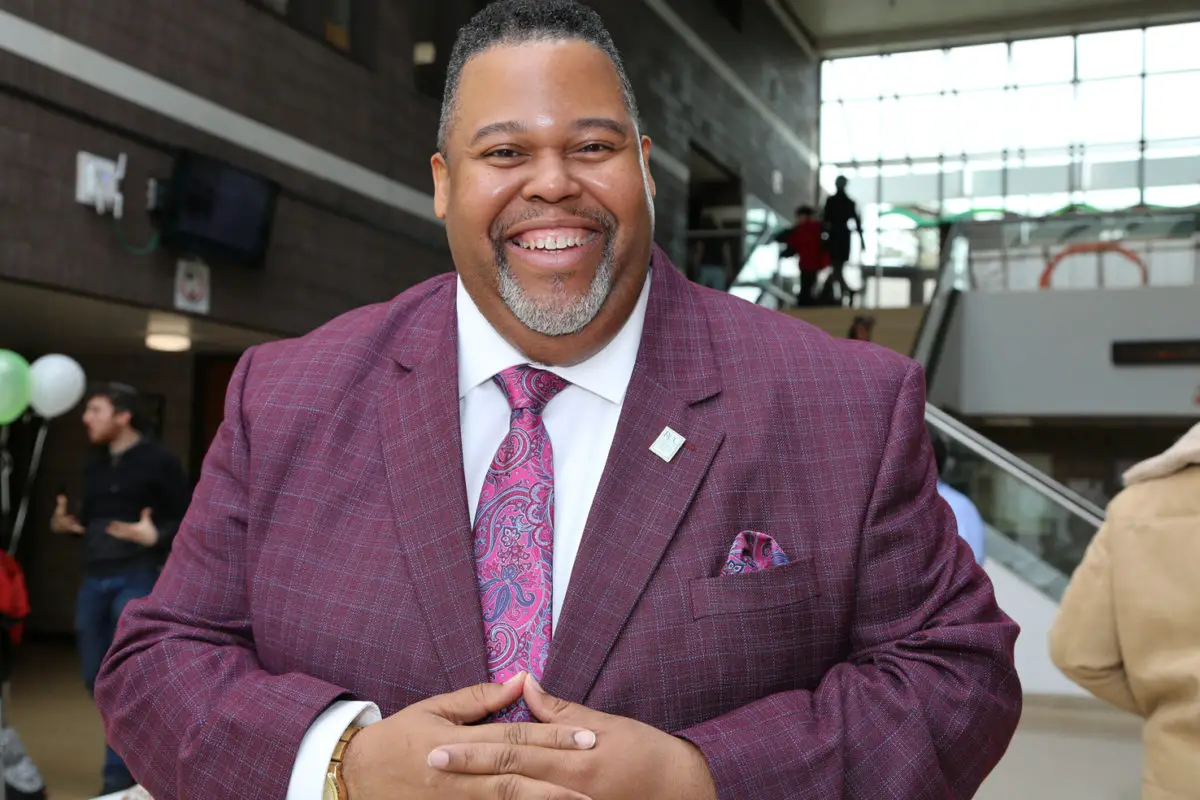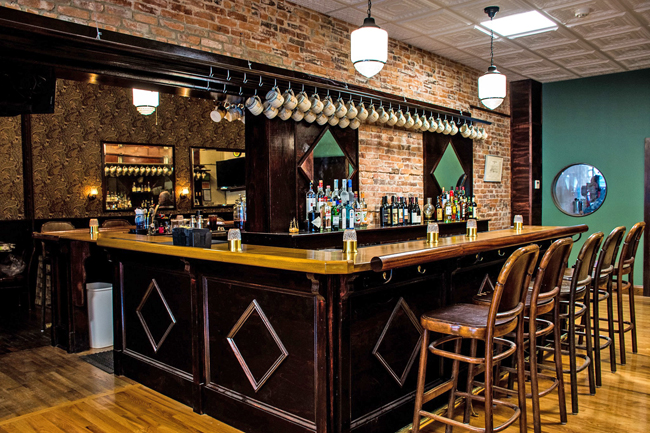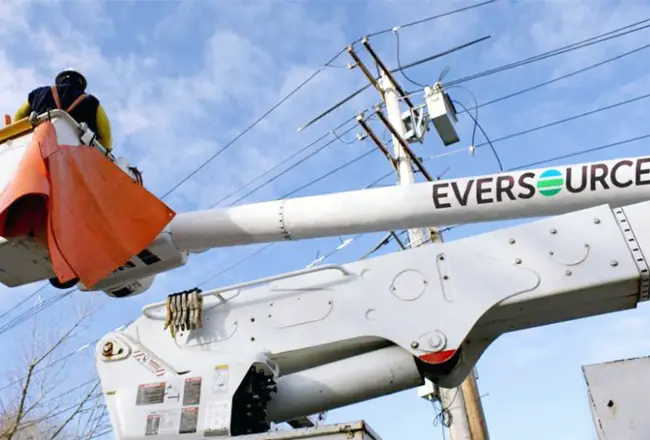 When Michael Baston became the seventh president at Rockland Community College in 2017, the economy was on an upswing and the future was limitless with potential. This year, however, things have been very, very different for both the nation and Baston”™s school.
When Michael Baston became the seventh president at Rockland Community College in 2017, the economy was on an upswing and the future was limitless with potential. This year, however, things have been very, very different for both the nation and Baston”™s school.
In this edition of Suite Talk, Business Journal Senior Enterprise Editor Phil Hall speaks with Baston on how he was able to steer his Suffern-based school through unprecedented crises.
This has been a crazy year for everybody, especially for the school system. How has your college been holding up this year? And how have you personally been holding up?
“The students, the staff and Rockland Community College (RCC) have been extraordinarily resilient. And they have persevered through personal challenges. They”™ve had a stiff learning curve, but they”™ve been able to kind of move forward understanding that we had to become a community of care in very real terms.
“It”™s one thing to say in your mission statement that you”™re a community of care, but when you”™re in a position where you have to consider one another”™s health and safety and well-being, and when you”™re in a position that you have to think about how are you going to continue to keep your core functions moving forward, how are you going to manage the fiscal realities of being in this set of circumstances? Especially with the economic impact on the state, which is one of your major funders and with the economic impact on the people who come to the college and who may have to stop or drop out because they lost the job that they had? How are you going to deal with the fact that some of the people that come to your school actually are working in these low-wage/high-risk, frontline essential worker jobs?
“And what could it mean for your community when you add to the pandemic not only the economic crisis and Covid itself, but all of the reckonings that are happening in the country: What has been unaddressed for so many years in substantial ways, the racial unrest that we saw after the murder of George Floyd and the moral outrage that really raised the stakes to build a more inclusive and equitable world? I am very confident that I lead an extraordinarily resilient people who could manage all of these things, who could deal with them in the fullness of feeling as human beings.
“And me, personally, I have certainly been inspired by the folks that I have the honor to serve and to serve with. It has been tiring because it”™s like what we call that perfect storm. But I think me and my family have weathered the storm. We”™ve come together, as families always do, and we”™re doing well.”
The college has recently made several important partnerships, including a new teamwork with Today”™s Students Tomorrow”™s Teachers, a nonprofit that recruits and mentors culturally diverse and economically challenged high school students who are interested in pursuing a career in teaching. How did that come about and what does this do for the school and its students?
“Some time ago, I met Dr. Bettye Perkins, who is one of the most engaging forward-thinking persons that you could meet and who is so passionate about the education of our children and the preparation of those who educate them. I have been in a great relationship with her for the last several years. A few years ago my college went through a metamorphosis, if you will, in terms of defining ourselves within the context of academic schools. One of the academic schools that we now have is the School of Education and Social Sciences. And as we look at the teacher shortage that is happening in New York state it will be significant in my region ”” and that shortage is because of retirements and the fact we don”™t have a robust teacher preparation pipeline.
“Those specific factors led me to say, ”˜Let”™s start to do something about this.”™ I began to have conversations with the late Regent Judith Johnson about ways that we could think about increasing and strengthening the pipeline. And while she was a big champion of this with me, she passed away (in 2019) and I wanted to make sure that conversation we began would not end. And so, Bettye Perkins and, Today”™s Students Tomorrow”™s Teachers is an exact example of how we build that pipeline so that it”™s strengthened for our state.”
The school also had two recent announcements, one with Pace University and one with Mercy College, for dual admission programs that enable RCC students to move on to the universities at a junior level after completing their RCC degree studies. Why is it important for your students to have this option to go to either Pace or Mercy?
“We want to strengthen the pipeline of students that have the opportunity to reach their dreams. From our perspective, there may be some students that at the time of application may not have the sort of level of readiness that Pace or Mercy expects ”” it”™s not that they don”™t have the promise, they just may not have the preparation.
“In these agreements, they get dual enrollment so they start with us and get the associate degree and then transfer into those institutions in junior standing in their major ”” as if they never left those institutions in the first place. Instead of them getting a rejection from Mercy or Pace, which might give them the impression that they”™re not up to the challenge, we say, ”˜You may not be ready for them yet, but if you come to Rockland Community College you will have a seamless experience ”” you”™ll be admitted in both places and during the time that you”™re at RCC you”™ll be able to attend activities and events at the campus of your interest and your credits will transfer.”™ And there will be the economic benefit from taking this route.”
What is the role of the community colleges not only in New York”™s educational environment, but New York”™s economic environment?
“I think we”™re going to be a critical engine for economic opportunity. Community colleges are the places where we really focus on the career readiness of our community and we are the primary gateway for those adult learners who maybe started college somewhere but were not able to complete at that time. They can come to this educational institution and get the kind of career development, opportunity and exploration to move into a level of that workforce that is going to be critical.
“It is at the community college where we have some of the most aggressive programs that are more short-term in nature and will get people back into the workforce, ultimately creating career ladders if they want to come back to get the larger degrees or to get on a different path. And in an economy like this, where the reset button is really being hit by the circumstances of Covid, we are probably one of the most economical options of high-quality education that produces engaged workers and informed citizens.”
What are the most popular courses at the college?
“Many of my folks want to be in our School of Nursing, Health and Wellness because not only is it a good position financially, but because many of them understand the fragility of our humanity as a result of Covid in a new way. People are also recognizing the importance of STEM and we see a lot of folks going into our School of STEM as another option.
“And lastly, the other area of significant interest is the Business and Professional Studies School. In that school, a lot of folks are going into the culinary arts program, the hospitality programs, the automotive program, and we see a lot of people that are engaged in our 3-D printing options and things of that nature.
“Many of our students are coming in with a much more clear-eyed focus on becoming employable. And I think that educational institutions that really highlight programs that lead to good labor market opportunities are going to be the institutions that that make it out of this challenging situation that has happened as a result of Covid.”
What are your priorities for 2021?
“The most important priority is to stay healthy and to stay hopeful. I think that to be forward thinking in terms of how business and industry is hitting the reset button, we can be preparing and designing programs that will meet the new needs that are emerging. Quite frankly, if you had told me to a year ago, that being a Zoomcaster would be a job, I would have laughed. Yes, it”™s a job now and people actually need skills for that ”” you can”™t just watch the YouTube video to engage in the kind of multimedia that people are going to be into.
“We also have to remind people currently dependent upon the gig economy that the gig economy may appear to be advantageous, but one has to remember that these are short-term opportunities. They don”™t provide you with a pension or health care and you are taking on all of the burden of your entrepreneurship. And if anything happens, you”™re on the hook.
“I am a big believer in entrepreneurism, but I think we”™ve got to get the people in our community to understand that you cannot forsake a real strategy of supporting and sustaining yourself and your family by just believing that the immediate gains of the gig economy will actually sustain you for the life that you deserve.”


















